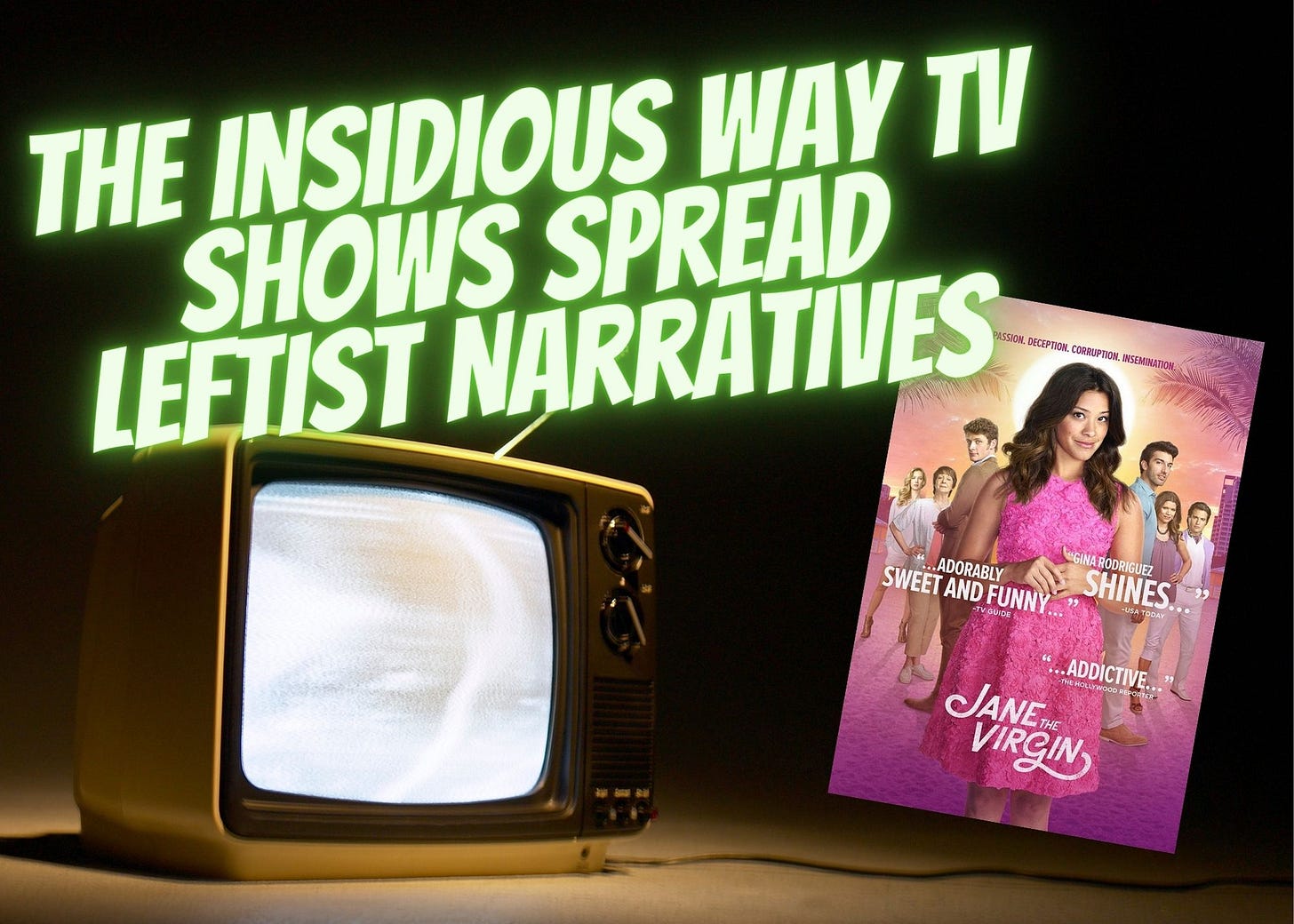When I was at the Manhattan School Of Music pursuing my master’s degree, my friend recommended I watch a show called “Jane the Virgin.” I had heard of it when it initially aired on the CW, but it was now into its fourth season though I had never actually watched it.
So I sat down and gave it a try.
The premise of the show is as follows: a woman who is waiting to have sex until marriage gets accidentally artificially inseminated with a stranger’s sperm. When she becomes pregnant, she has to choose between her current fiancé, a sweet and goofy police officer, or the father of her child, a man for whom she once had feelings.
At the time, I thought the show was funny and charming, a love triangle with drama like any other show on TV. I enjoyed the intrigue, since the entire show is a spoof on telenovelas. It was fun to watch, and I did watch, from beginning to end.
I recently decided go back and rewatch some of the shows I had enjoyed during my time in graduate school to see if they held up – and so I started “Jane the Virgin” all over again.
In so doing, I’ve learned just how much I’ve changed in the last five years. I’ve realized how comfortable I was calling myself conservative while still imbibing leftist ideology without even thinking about it. I’ve noticed how much more I currently perceive leftist narratives subtly sprinkled through what seems like harmless media.
And I’ve learned that what we think of as fun TV shows are really the easiest tool to spread a leftist worldview.
“Jane the Virgin” displays this perfectly. Let’s take just one example: The main character is Catholic and is waiting for marriage (although not for all the right reasons, but that’s a different story). At the same time that she is portrayed as a religious woman, she consistently entertains the thought of ending up with her initial fiancé rather than fighting every step of the way to build a family with the father of her child. Instead of removing the temptation of her ex, she hangs out with him. Instead of leaning into her feelings for her child’s father (which she does have, for the record), she questions it frivolously because she cares more about her own self-fulfillment than the stability of her child’s family.
Now, it’s not as if the series doesn’t deal with some of these struggles. But the totally modern view of relationships as the key to self-fulfillment rather than the building blocks of a family is a leftist narrative that insidiously permeates our thought processes. “Of course, she should end up with the man she gets butterflies with,” we say to ourselves. “Of course, she can’t just marry the father of her child that quickly,” we explain away.
As we see our favorite characters make choices we understand emotionally but disagree with morally or practically, we begin to rationalize leftist ideology. Just seventy years ago, the idea that a man would propose to a woman he got pregnant was considered the only acceptable course of action. Today, we shame men for proposing based on pregnancy instead of based on his undying love.
Instead of accepting the fundamental truth that a child needs both a father and a mother to thrive, we ask a different question – “How do the mother and the father thrive?” The question of the child is left for a later date.
These narratives are everywhere in movies and television and cover the gamut of topics. But stories are the easiest way to change people’s minds. A good argument is useful here and there – but what’s most effective is making you like someone and then tearing the rug out from under you. If you like a character who makes questionable choices or makes choices that are understandable but not good, it’s so easy to justify their behavior.
I’ve taken on the project of watching and rewatching shows with a critical eye – not simply viewing them for fun, but to test myself. What do the creators of the show want me to think? What do they want to me leave this episode believing? Once you make this shift in your habits, it’s hard to break – but that’s a good thing. It prevents you from getting taken in – and each time you catch a blatant narrative being forced on you, the viewer, you’ll take a little pride knowing that you can clock it from a mile away.
Quote of the Week:
“Cowards die many times before their deaths; the valiant never taste of death but once.” - William Shakespeare
Classic Style Inspo
Jacob and I went to a wedding this past weekend and it was absolutely lovely. I used to think that you couldn’t wear black to a wedding - it felt too somber for such a happy occasion. But with a dress this festive, I realized that it was absolutely appropriate! A dress with bedazzled sheer sleeves would never be appropriate to wear to a more serious event - but it is perfect for something celebratory. So if you’re wondering if you can wear black to a wedding, you can if you wouldn’t wear it to something more somber!
Things I’ve Been Loving: Contigo Water Bottle
I have been using this water bottle all summer! I love how easy it is to clean and how convenient it is to sip water from the spout. It is probably the only water bottle I’ve consistently used since I purchased it - and it’s been keeping my hydrated in this summer heat!
Welcome to Classically Abby!
I'm your resident #ConservativeInfluencer, cultural commentator, opera singer, fashionista, makeup artist, and wife with a classic take on the modern world. Follow me on YouTube, Instagram, and Twitter to see how! And together, let's be classic.
*Disclosure: This email may contain affiliate links, which means I may receive a commission if you click on a link and purchase something. Thank you for your support!







One of the worst offenders-IMHO-are the movies made for Lifetime TV. They are not even insidious but are blatantly anti-conservative! I no longer watch them!